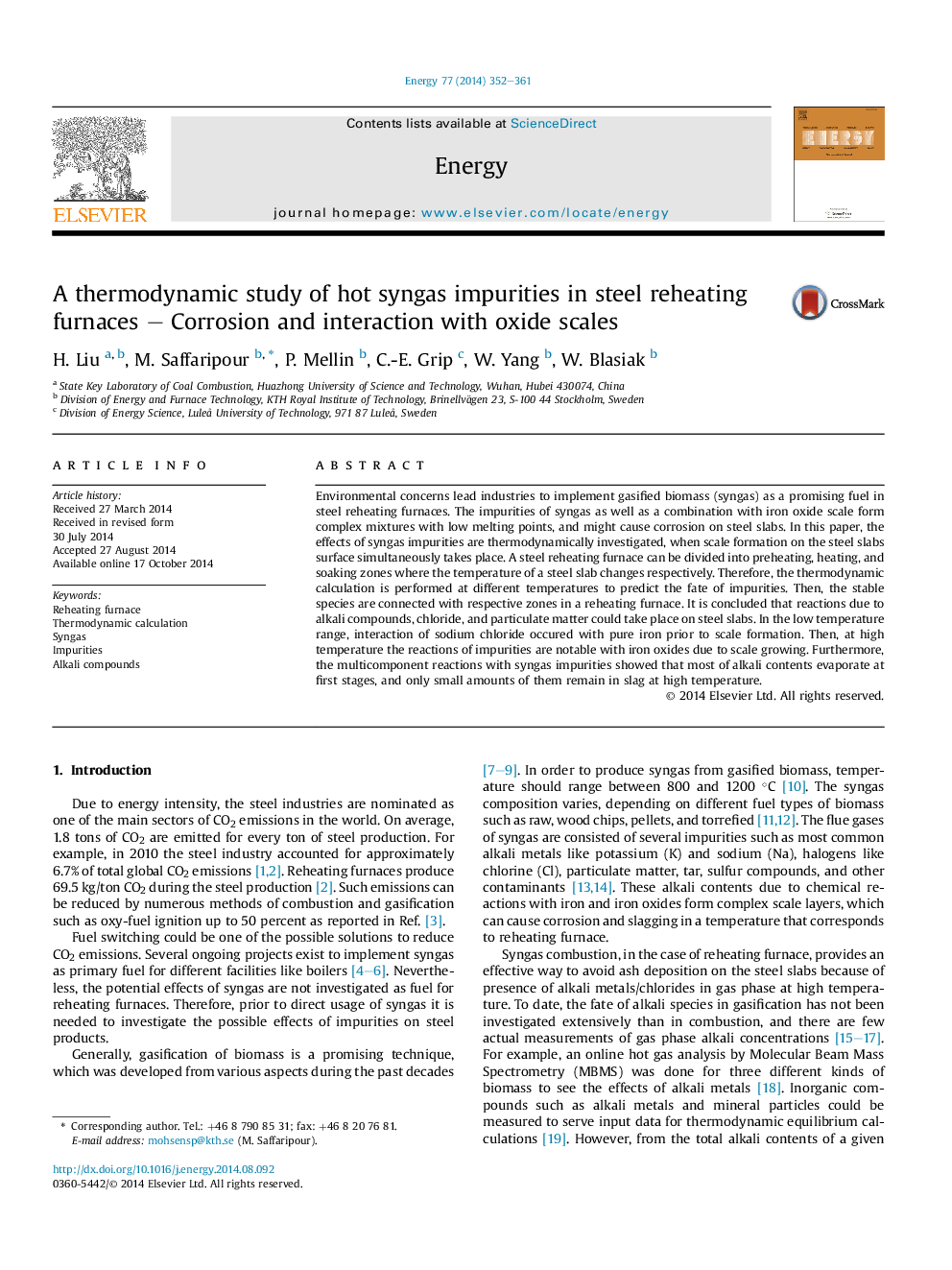| Article ID | Journal | Published Year | Pages | File Type |
|---|---|---|---|---|
| 8076367 | Energy | 2014 | 10 Pages |
Abstract
Environmental concerns lead industries to implement gasified biomass (syngas) as a promising fuel in steel reheating furnaces. The impurities of syngas as well as a combination with iron oxide scale form complex mixtures with low melting points, and might cause corrosion on steel slabs. In this paper, the effects of syngas impurities are thermodynamically investigated, when scale formation on the steel slabs surface simultaneously takes place. A steel reheating furnace can be divided into preheating, heating, and soaking zones where the temperature of a steel slab changes respectively. Therefore, the thermodynamic calculation is performed at different temperatures to predict the fate of impurities. Then, the stable species are connected with respective zones in a reheating furnace. It is concluded that reactions due to alkali compounds, chloride, and particulate matter could take place on steel slabs. In the low temperature range, interaction of sodium chloride occured with pure iron prior to scale formation. Then, at high temperature the reactions of impurities are notable with iron oxides due to scale growing. Furthermore, the multicomponent reactions with syngas impurities showed that most of alkali contents evaporate at first stages, and only small amounts of them remain in slag at high temperature.
Related Topics
Physical Sciences and Engineering
Energy
Energy (General)
Authors
H. Liu, M. Saffaripour, P. Mellin, C.-E. Grip, W. Yang, W. Blasiak,
